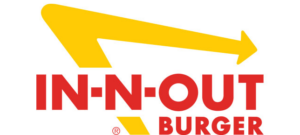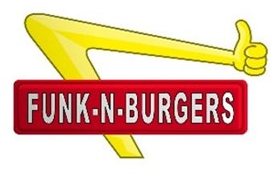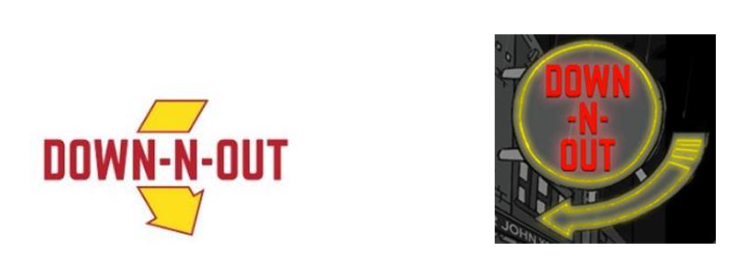 Author: Jasmine Burrows, Progressive Legal
Author: Jasmine Burrows, Progressive Legal

In-N-Out Burgers, Inc v Hashtag Burgers Pty Ltd [2020] FCA 193 – Case Summary

Facts
In-N-Out Burgers, Inc., also known as In-N-Out, is a well-known fast food chain that was established in the United States in 1948. It has since accumulated vast popularity and made a name for itself on an international level. Its restaurants offer a basic menu and a “secret menu” with special burger options like “protein style,” “animal style,” and “double meat” burgers.
In-N-Out has no brick-and-mortar stores open in Australia, but it sometimes holds temporary ‘pop-up’ events in various Australian locations. Between 2012 and 2017, In-N-Out hosted a single pop up event each year in Australia.
It also owns an online store that sells promotional merchandise to be sold around the world, including from Australia.
In-N-Out thus owns several trade marks in Australia including IN-N-OUT BURGER, ANIMAL STYLE and PROTEIN STYLE, as well as its logo below.

In June 2015, Hashtag Burgers Pty Ltd (Hashtag Burgers), held its own pop-up event in Sydney, Australia. The Facebook promotion for the event announced:
“This time on the menu we have the legendary In’N’Ou … I mean the Down’N’Out burger served up ANIMAL STYLE for all you fatties. Go single or double‑double that sexy MOFO.”
The advertising for the event displayed the logo below:

In January 2016, Hashtag Burgers held another pop up event in Sydney, Australia. The event was advertised on Facebook as ‘FUNK‑N‑BURGERS: DOWN‑N‑OUT (IN‑N-OUT TRIBUTE) ~FREE PARTY.’
This was accompanied by the following promotional content:
“WE ARE BACK FOR 2016!! To kick of[f] the new year we are bringing back the MOST POPULAR burger from last year … the In-N-Ou..*cough* I mean … Down-N-Out Burger – served ANIMAL STYLE for all you fatty boombas!
And if that wasn’t enough, every burger will be accompanied by ANIMAL STYLE fries with liquid cheese! Hrrrrrggggggggg…
Still not satisfied? DOUBLE-DOUBLE that sucka and turn your meal into a heart attack on a plate.”
In May 2016, Hashtag Burgers opened its first pop-up restaurant and named it ‘DOWN-N-OUT’. The media release was titled ‘Sydney’s Answer to In-N-Out Burgers have finally arrived’. The release also referred to the ‘cheekily named Down-N-Out’ and promoted ‘secret menu hacks such as Animal Style and Protein Style.’ The following logos were designed for the restaurant:

After this, In-N-Out sent a cease and desist letter to Hashtag Burgers requesting that it stop using the In-N-Out trade marks and change the name and logo of the restaurant to ensure that it could be easily differentiated from In-N-Out’s brand.
Hashtag Burgers responded by denying any use of the word marks ‘Animal Style’ and ‘Protein Style’. It also asserted that ‘Down-N-Out’ has its own separate and distinct meaning in the English language that is unlikely to conflict with the meaning of ‘In-N-Out’. The word ‘Down’ is also a reference to ‘Down Under’ which indicates that, unlike In-N-Out, that they are an Australian business.
Hashtag Burgers did, however, indicate that it would cease using the arrow mark in their logo and change its name to ‘D#WN N- OUT’. The new logos were as follows:

In-N-Out commenced legal proceedings to restrain Hashtag Burgers from using its trade marks, and for damages and restraining orders for misleading and deceptive conduct and for passing off.
Issues
Were the signs and logos used by Hashtag Burgers (the Down-N-Out marks) deceptively similar to the In-N-Out trade marks?
Was Hashtag Burgers in breach of s 18(1) of the Australian Consumer Law by engaging in misleading and deceptive conduct by implying a connection between In-N-Out and Down-N-Out, even though such an association did not exist?
Was Hashtag Burgers liable for the tort of passing off?
Decision
The signs and logos used by Hashtag Burgers (the Down-N-Out marks) were deceptively similar to the In-N-Out trade marks.
Hashtag Burgers had made a false representation that they were associated with In-N-Out and were liable for misleading or deceptive conduct.
Hashtag Burgers was liable for the tort of passing off.
Reasoning
Were the signs and logos used by Hashtag Burgers (the Down-N-Out marks) deceptively similar to the In-N-Out trade marks?
Katzmann J found that:
The Down N’ Out marks convey an overall impression of fast food, specifically burgers, and quick service, which is the same impression associated with the In-N-Out marks.
The directors of Hashtag Burgers had the intention to benefit from In-N-Out’s reputation by incorporating similarities in their menus and using terms like “Animal Style” and “Protein Style,” which are associated with In-N-Out.
The directors of Hashtag Burgers not providing requested documents during the discovery process also suggested that they might be concealing information that could support In-N-Out’s case.
Both visual and auditory resemblances are present between the marks, notably the use of ‘N-OUT.’
Changes to the Down N’ Out trademark, such as the inclusion of an apostrophe and a hashtag, didn’t significantly alter its sound or appearance.
There was a genuine and tangible risk of people becoming confused due to the similarities between the two marks.
Was Hashtag Burgers in breach of s 18(1) of the Australian Consumer Law by engaging in misleading and deceptive conduct by implying a connection between In-N-Out and Down-N-Out, even though such an association did not exist?
The Court explained that “to deceive” means to mislead people into thinking that In-N-Out is the source of the products or services associated with the Down N’ Out mark. If there is a ‘real risk’ that a number of persons have reasonable doubt about the matter, there is most likely a breach. This is based on recollections of people of ordinary intelligence and memory.
The Court determined that In-N-Out had shown that their brand had a strong reputation in Australia by May 26, 2016, which was the date when the Down N’ Out Facebook page was launched.
In-N-Out’s name and brand were familiar to a significant number of people who could be potential customers. This included individuals who had visited an In-N-Out restaurant or heard about the restaurants and their burgers through media coverage or pop-up events in Australia. This group encompassed both Australian consumers and visitors, especially those from the United States.
The directors of Down N’ Out intentionally incorporated major elements from the In-N-Out marks to create confusion among consumers and capitalize on In-N-Out’s reputation. They used significant aspects of the marks, replacing “IN” with “DOWN” to evoke an Australian connection (“Down Under”), the common use of the names to describe burgers and burger restaurants, specific colours, and by following In-N-Out’s pop-up events in Australia. This could mislead people into thinking that Down-N-Out was an Australian franchise of In-N-Out.
Like In-N-Out, Hashtag Burgers offered a ‘secret menu’ including ‘animal style’ and ‘protein style’ burgers.
Changes made to the name through the addition of a hashtag and an apostrophe didn’t have a substantial impact, so the initial impression remained strong, which is sometimes called a “hangover effect.” This means that the changes didn’t alter the overall perception and might have even reinforced the original impression.
Was Hashtag Burgers liable for the tort of passing off?
The Court was satisfied that Hashtag Burgers were liable for the tort of passing off by the same conduct and for the same reasons as the breach of the Australian Consumer Law.
Need Trade Mark Help?
Please get in touch with us today via phone or the contact form on this page.


